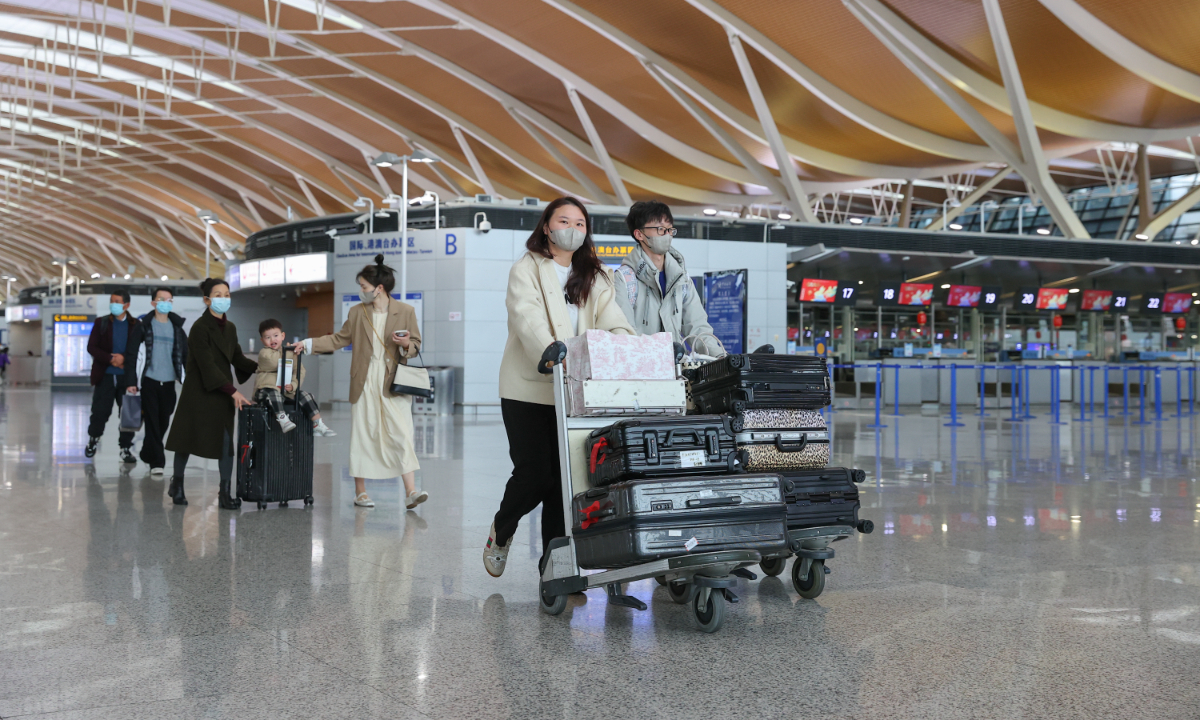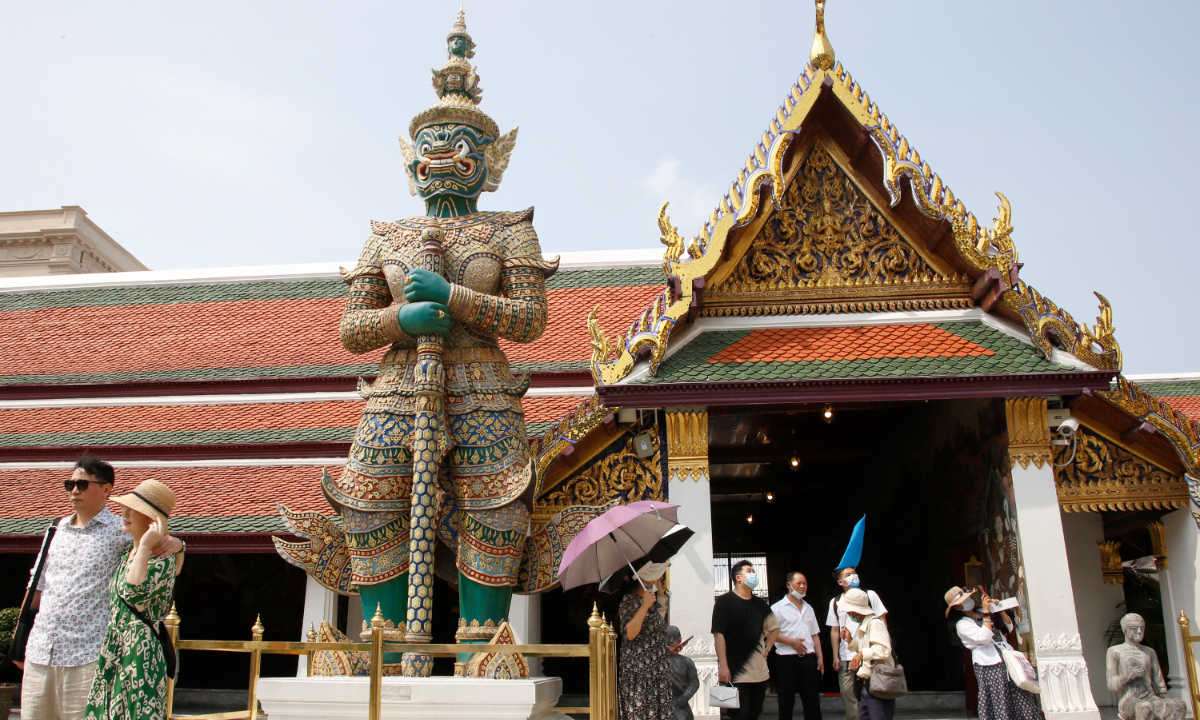ARTS / CULTURE & LEISURE
International travel workers tentatively regain hope
Tourism turnaround

Travelers carry their luggage before boarding an international flight from Shanghai Pudong International Airport on February 6, 2023. Photo: IC
With the optimization of COVID-19 responses in China, one industry, which has been ignored for the past three years due to the pandemic, is now booming: the overseas Chinese tourism industry.
The blow on the industry had been huge during the pandemic: As most costumers in local Chinese travel agencies are Chinese citizens, the cancellation of international flights due to the impact of COVID-19 caused heavy economical losses for all workers involved in the industry.
But things are now looking up and multiple countries are adjusting their traveling policies to attract international visitors to boost their economy.
Song Xiang, a Beijinger who has lived in Germany for decades, has been engaging in both Chinese and European tourism for more than 10 years, customizing travel services for Chinese tourists.
"I can certainly feel a marked improvement recently, especially this month," Song told the Global Times on Wednesday.
"The current number of tour groups has returned to about 70 percent of what it was before the epidemic in 2019."
'It is promising'
For those who have been struggling to find a way to support their career, it is a good omen to know that everything is getting normal as EU countries have agreed to phase out COVID-19 test requirements for travelers from China.
On February 17, a total of 27 EU member states agreed to phase out the requirement for a negative pre-travel nucleic acid testing by the end of February. The spot checking of arrivals from China will be removed from around mid-March.
"Plus with visas for relatives visits and business returning to normal between China and Europe, most of tourist visas have been restored, so I actually look forward to doing quite a bit of business in the future," said Song.
Song now leads two tourist groups every month, each including around 40 people in it.
Surprisingly, the local travel agency he works with has recently been experiencing a shortage of manpower and started recruiting new employees since the end of February.
Huang Nuonuo, another Chinese tour guide in Spain, told the Global Times that he thinks it will take time to fully recover to a pre-2019 level and workers like him are paying attention to global travel policies.
Things, he says, look "promising for our career."

Chinese tourists visit the Temple of the Emerald Buddha, in Bangkok, Thailand, on February 7, 2023. Photo: IC
On February 6, the Chinese Ministry of Culture and Tourism rolled out a pilot program to revive the country's outbound group travel services including travel toward destinations such as Thailand, the Maldives, the UAE and other popular places for Chinese tourists like Argentina, with its Antarctic tourism resources.
Liu Lingxi, a Chinese tour guide who was born in East China's Fujian Province and grew up in Argentina, had been a local guide for years before the pandemic hit her career hard and she decided to return to China.
She told the Global Times that the traveling route from Ushuaia - the southernmost town in Argentina - to the Antarctic used to be one of the most popular choices among her customers.
She learned that Argentina's new travel boost policy will come into effect in May - the Argentine government has decided to provide subsidies and discounts to tourists and promote the construction of tourism infrastructures, to help cross-border travellers.
Liu has already booked a ticket for early April, planning to go back the country she had lived in for almost 10 years.
"I'm quite confident about my future and I'm willing to give it another go as now I can freely travel between Argentina and China," Liu said.
Anxious expectations
Song told the Global Times that even he has experienced some blows during his career, since the German government had provided subsidies and tax relief for those in the tourism industry from 2020 to 2022, the impact on him has not been that severe as many may think.
As for Liu, she nearly went bankrupt just as she was planning to open her own local Chinese travel agency by investing more than 1 million yuan ($145,000) at the beginning of 2020, and "I still feel lucky that I finally dropped the idea to open a start-up and got back to China."
But others have not been so fortunate.
A London-based tour guide Mark (pseudonym) who has settled in the UK and lived there for 18 years told the Global Times that the impact of the pandemic over the tourism industry is quite a "long-term" one.
"I've been struggling in keeping my career but some of my colleagues have changed jobs by becoming drivers or working in a restaurant to make a living," he said.
Li Jie, another tour guide in London, agreed and told the Global Times that the recovery of the tourism industry is still a long way ahead. Even though flights are being restored between China and the UK, "the tickets are still quite expensive, and this is also one of the main factors affecting our business," Li said.
After the South Korean government decided to lift the pre-travel nucleic acid testing requirements for people from China starting from Wednesday, a local Chinese travel agency launched a 20 percent discount for all of their services in order to attract Chinese visitors.
However, an employee on Wednesday revealed to the Global Times that such a discount has yet to attract more tourists partially because "we're all just restarting and we're all expectant and anxious about this new beginning."



